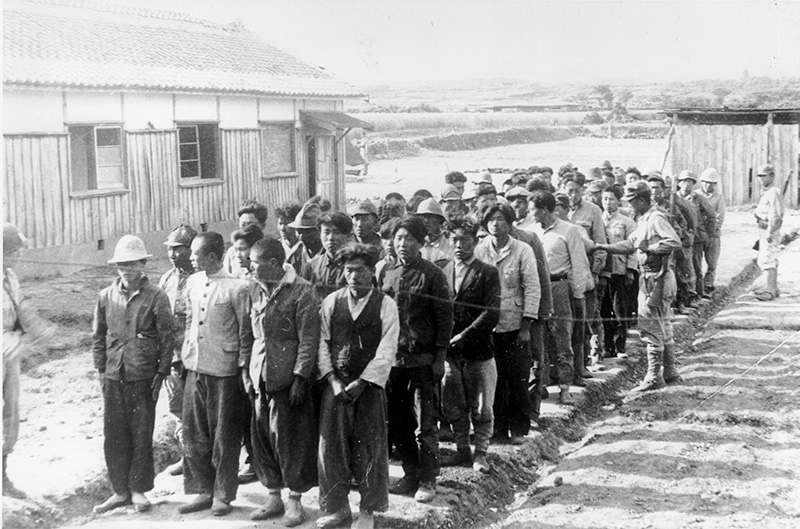

The severe crackdown started Oct. 27, 1948, when Song Yo-chan, who was appointed the 9th regimental commander, announced in a decree that all land beyond 5 km from the coast is “hostile territory” and any individual entering the region “will be killed unconditionally.” This decree seriously violated human rights and resulted in the illegal killing of Jeju people. Such acts also would have violated the 1949 Geneva Convention, which stipulates that prisoners of war and non-combatants must be treated humanely, if it had been in force at that time.
On Nov. 17 of the same year, martial law was declared. Originally, martial law was a temporary measure to allow the army to take control of judicial, legislative and administrative powers during a state of emergency. However, it is still doubtful whether the crisis on Jeju Island at that time justified its imposition.
Even if the imposition of martial law was justified, it still would have been illegal to kill people without due legal process. Nevertheless, most villages situated in the mid-region of Mt. Hallasan were burned and all villagers unable to leave were brutally killed. No exceptions were made even for women, children or the elderly. These killings were illegal even during war, and this merciless carnage continued unchecked.
At the start of the conflict, around 500 members of the armed resistance were identified by the military and the police. However, some 30,000 people were killed in order to punish those 500 people, and in the process many evil and unimaginable acts were committed on the island. This is why people call this period “the era of madness.” The period continued until the spring of 1949.